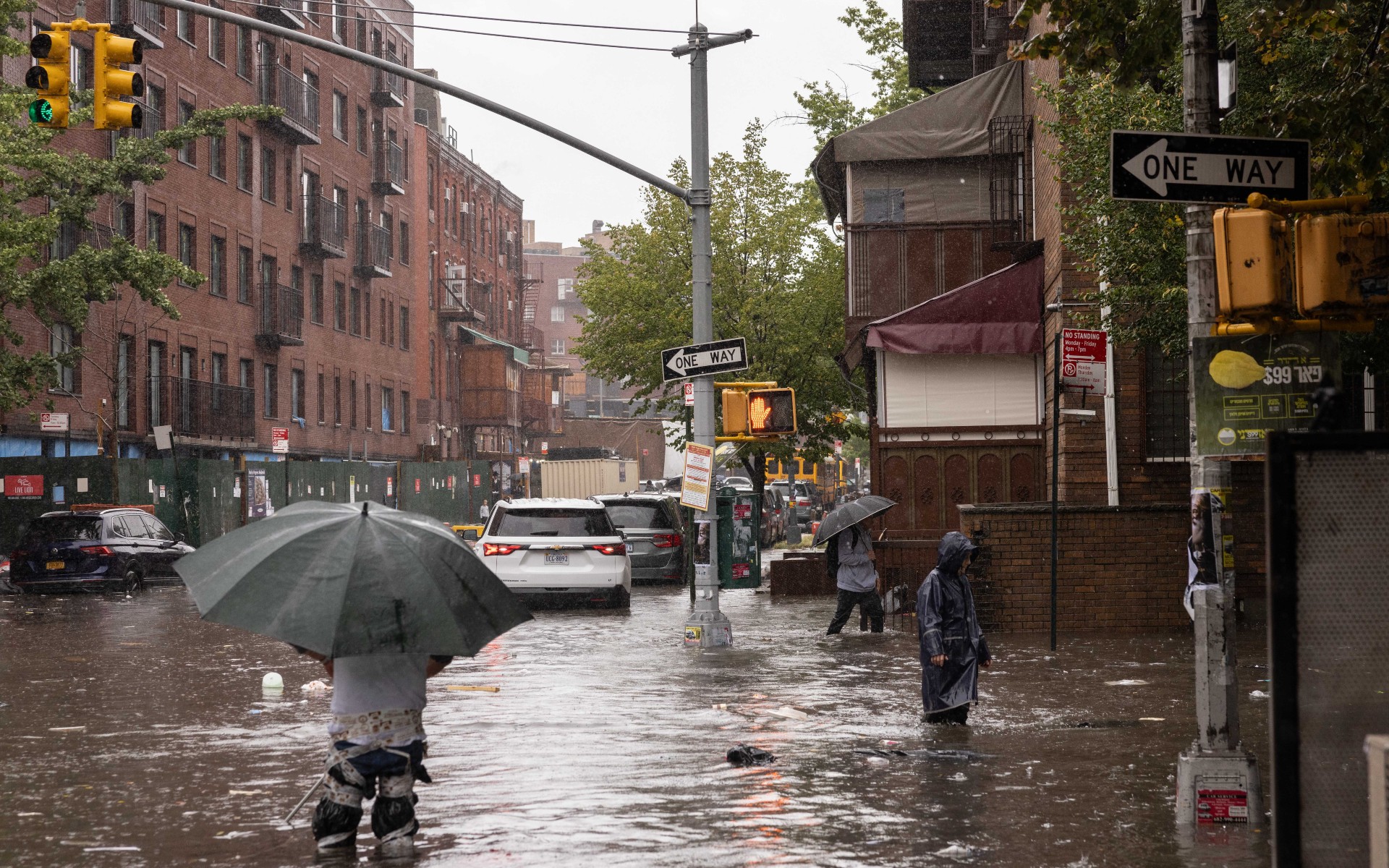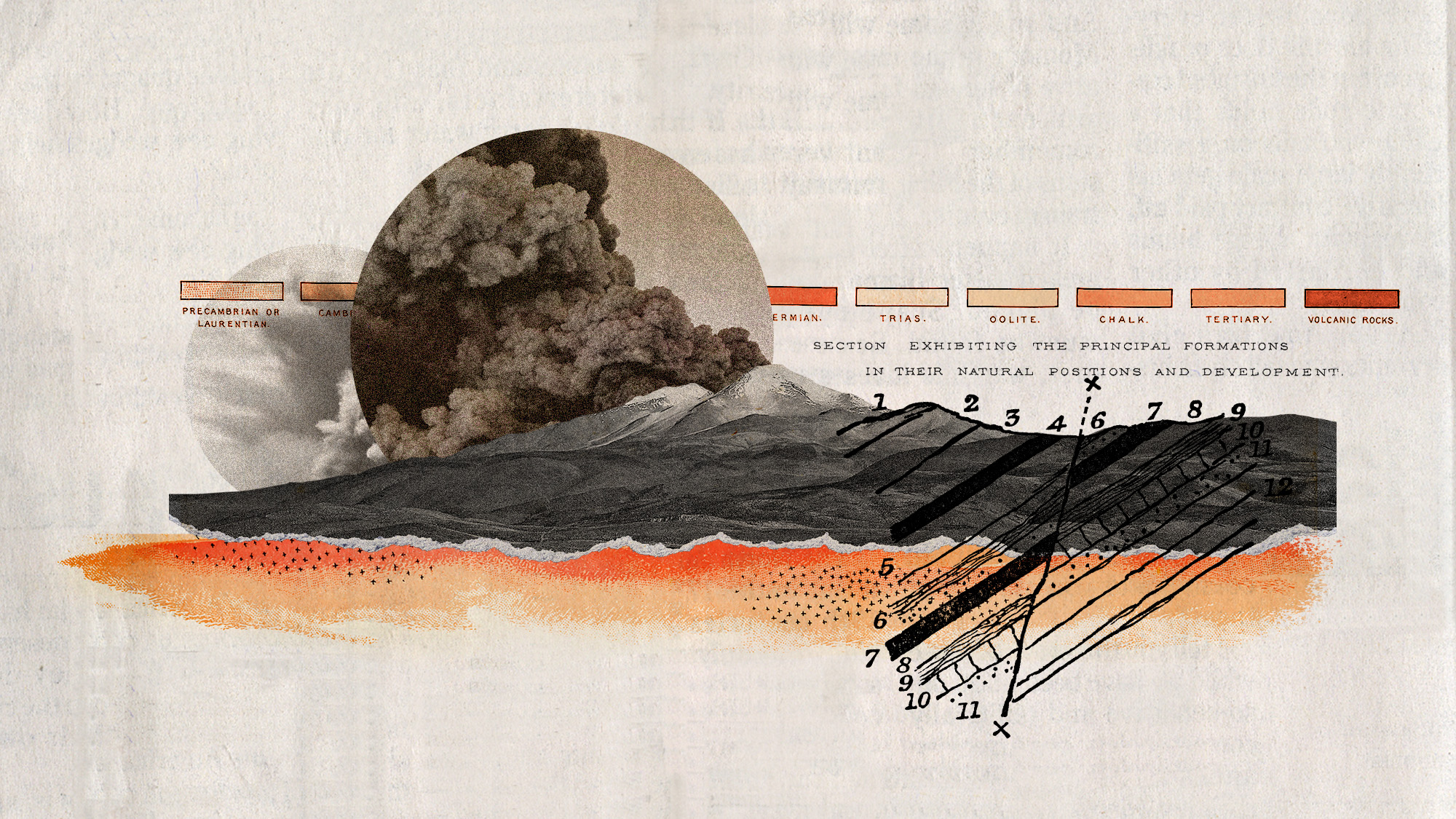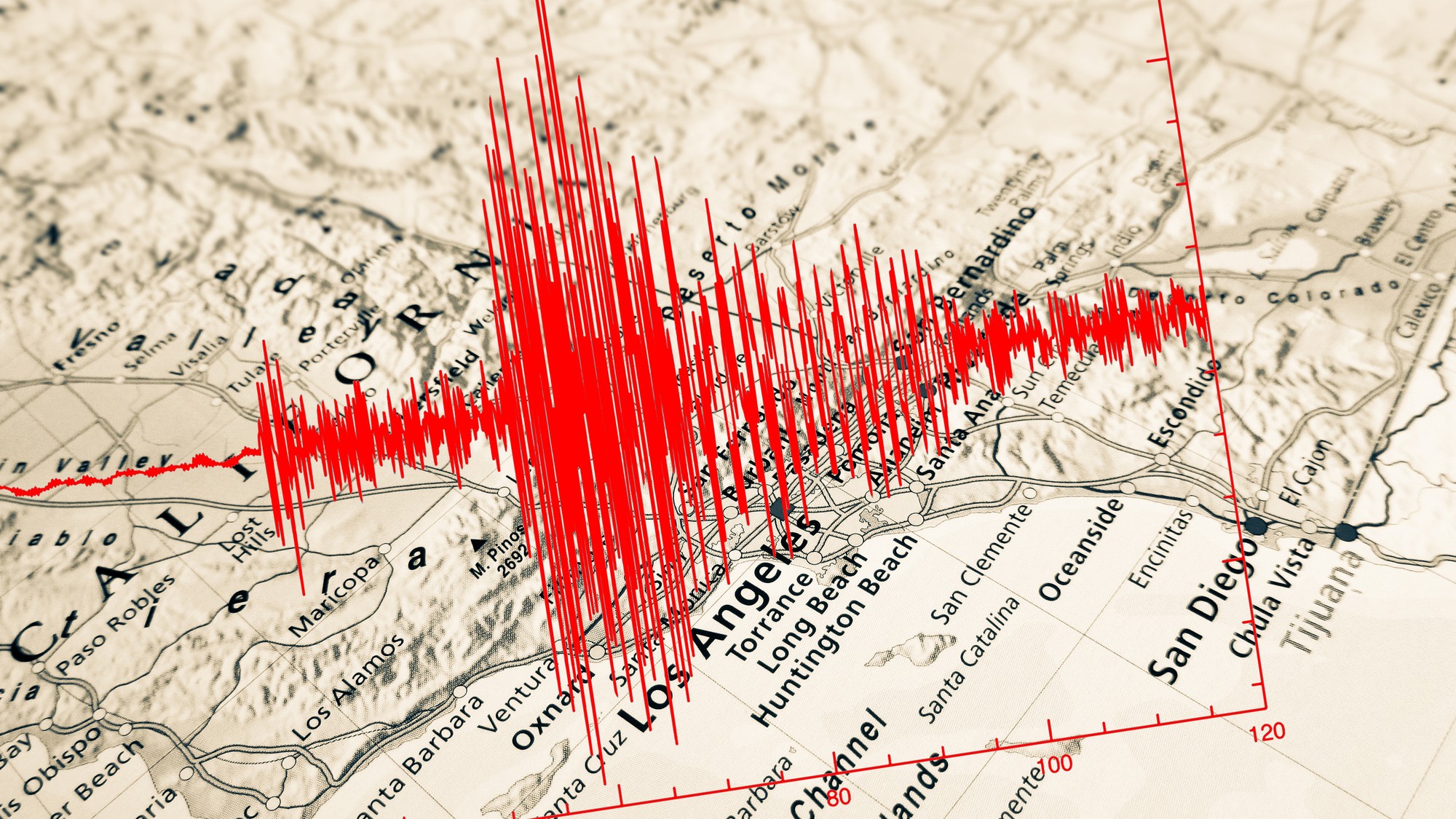Why New York City was caught off guard by flash flooding
Is climate change moving too fast or are city leaders dragging their feet?


A free daily email with the biggest news stories of the day – and the best features from TheWeek.com
You are now subscribed
Your newsletter sign-up was successful
Last week, scenes of extreme flooding in New York City made the rounds on social media, with parts of the city and Long Island appearing underwater as the intense rainfall overwhelmed the city's drainage system. Much of the area was under flash flood warnings as the record rainfall seeped into the subway system and stranded commuters around the city in an unprecedented storm.
The intense rainfall marked the most rain in a single day at New York’s John F. Kennedy International Airport, which saw nearly 8 inches of rain in one day, more "than any other since 1948," per The Washington Post. Brooklyn was hit with about a month's worth of rain in three hours "as it was socked by some of the storm’s most intense rainfall rates," the outlet added. The extreme precipitation prompted New York Gov. Kathy Hochul (D) to declare a state of emergency, calling the rainfall "a life-threatening event,” per The New York Times. While some have positioned the storm as a real-time example of climate change, others feel strongly that human error and interaction also played a direct role in the magnitude of the damage.
Climate change is outpacing the city's preparedness
New York City's infrastructure was built for weather patterns of the past, and those designs did not account for the recent extreme rainfall and flash flooding caused by Hurricane Irene, Hurricane Sandy, or, more recently, Hurricane Ida. “We now have in New York something much more like a tropical-rainfall pattern,” Rohit Aggarwala, New York City’s environmental protection commissioner, said at The Atlantic Festival hours before the storm hit. When designing infrastructure, “you always build to the record,” Aggarwala noted, but that becomes complicated when climate change creates conditions that break those records.
The Week
Escape your echo chamber. Get the facts behind the news, plus analysis from multiple perspectives.

Sign up for The Week's Free Newsletters
From our morning news briefing to a weekly Good News Newsletter, get the best of The Week delivered directly to your inbox.
From our morning news briefing to a weekly Good News Newsletter, get the best of The Week delivered directly to your inbox.
“This changing weather pattern is the result of climate change, and the sad reality is our climate is changing faster than our infrastructure can respond,” Aggarwala said, per the Times.
The big takeaway from the city's sudden deluge is that "our infrastructure was designed for a climate that no longer exists," University of Michigan climate scientist Mohammed Ombadi told Vox. Recent floods have made that point "very clear," as we continue to "hear news of washed-out roadways and bridges, damaged tracks in railroads, and swamped homes," Ombadi added. "We need to change the way we design and build infrastructure to be in line with the increase in rainfall extreme events predicted by climate scientists."
Climate change isn't the only thing to blame
The nationwide trend of unexpected flooding is due in part to "the role the human-built environment plays in exacerbating and sometimes entirely creating these flooding events," Samuel Brody, professor and director of the Institute for a Disaster Resilient Texas, told The Verge. That's what is "playing out in New York City today." Cities need to monitor and update their drainage systems over time. "Historically, in the United States, we’ve done a very bad job of that." Brody also challenged the notion that climate change is advancing too quickly, arguing that "a much quicker, more powerful vector of risk" is that "human development is changing much more quickly than our drainage systems and our infrastructure can accommodate — much more quickly than climate change."
This isn't the first flood to overwhelm the city or affect the city's underground transportation system. But while climate change has turned "flooding into a more regular, deadly problem for the five boroughs," New York City Mayor Eric Adams "seemed more concerned during the first months of his administration about inundating the subway with cops," Kate Aronoff wrote in the New Republic. And he's not the only city leader slacking: "New York’s governor and Democratic supermajority can’t seem to agree on taxing the rich a little bit more to help deal with climate change."
A free daily email with the biggest news stories of the day – and the best features from TheWeek.com
"It’s long past time for political leaders and citizens alike to prepare differently for such forecasts," said Bloomberg's Mark Gongloff. Some of the billions of dollars that President Biden and Congress allocated for infrastructure last year should "be spent on waterproofing New York and other cities much more thoroughly." As it stands, "it is far too easy to bring one of the greatest cities in the world to a wet, grinding halt."
Theara Coleman has worked as a staff writer at The Week since September 2022. She frequently writes about technology, education, literature and general news. She was previously a contributing writer and assistant editor at Honeysuckle Magazine, where she covered racial politics and cannabis industry news.
-
 The ‘ravenous’ demand for Cornish minerals
The ‘ravenous’ demand for Cornish mineralsUnder the Radar Growing need for critical minerals to power tech has intensified ‘appetite’ for lithium, which could be a ‘huge boon’ for local economy
-
 Why are election experts taking Trump’s midterm threats seriously?
Why are election experts taking Trump’s midterm threats seriously?IN THE SPOTLIGHT As the president muses about polling place deployments and a centralized electoral system aimed at one-party control, lawmakers are taking this administration at its word
-
 ‘Restaurateurs have become millionaires’
‘Restaurateurs have become millionaires’Instant Opinion Opinion, comment and editorials of the day
-
 How climate change is affecting Christmas
How climate change is affecting ChristmasThe Explainer There may be a slim chance of future white Christmases
-
 Why scientists are attempting nuclear fusion
Why scientists are attempting nuclear fusionThe Explainer Harnessing the reaction that powers the stars could offer a potentially unlimited source of carbon-free energy, and the race is hotting up
-
 Canyons under the Antarctic have deep impacts
Canyons under the Antarctic have deep impactsUnder the radar Submarine canyons could be affecting the climate more than previously thought
-
 NASA is moving away from tracking climate change
NASA is moving away from tracking climate changeThe Explainer Climate missions could be going dark
-
 What would happen to Earth if humans went extinct?
What would happen to Earth if humans went extinct?The Explainer Human extinction could potentially give rise to new species and climates
-
 Bacteria can turn plastic waste into a painkiller
Bacteria can turn plastic waste into a painkillerUnder the radar The process could be a solution to plastic pollution
-
 A zombie volcano is coming back to life, but there is no need to worry just yet
A zombie volcano is coming back to life, but there is no need to worry just yetUnder the radar Uturuncu's seismic activity is the result of a hydrothermal system
-
 The lesser-known Elsinore fault is a risk to California
The lesser-known Elsinore fault is a risk to CaliforniaThe Explainer A powerful earthquake could be on the horizon
